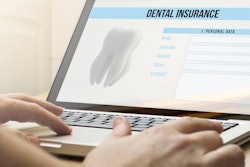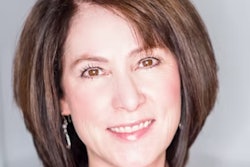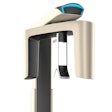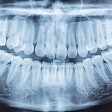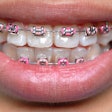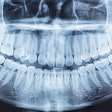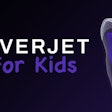Artificial intelligence (AI) has permeated various sectors of healthcare, and dentistry is certainly no exception.
Recently, dental AI software company Videa Health announced it is partnering with vVardis to enable dental clinicians to bring better preventive care to millions of patients by developing enhancements within VideaAI, VideaHealth's dental AI platform, and the detection of early carious lesions and treatment with Curodont Repair Fluoride Plus, a noninvasive enamel remineralizing technology.
 Florian Hillen.
Florian Hillen.
With this recent announcement in mind, I spoke with Florian Hillen, the CEO and founder of VideaHealth to discuss this move and what's next for AI in dentistry. Hillen and I sat down at the recent Association of Dental Support Organizations (ADSO) meeting in Denver to catch up on a wide range of topics centered on the partnership and the future of AI in dentistry.
Q: So what excites you the most about this news with vVardis?
A: I think one of the powers of AI is we help clinicians on the one side to increase case acceptance by visualizing treatment recommendations to the patient. On the other side, we also help clinicians to identify smaller lesions earlier.
The entire vision about VideaHealth and its mission is that patients get the right care at the right time and don't delay treatment. Historically, there were not great treatment options for early-stage decay, incipient decay. Now, with this partnership, we can educate the market more on their oral health and what can be done earlier to prevent long-term issues.
Q: We're talking early decay here. Are we getting to the point where AI will help dentistry solve problems we didn't even know could be solved?
A: I think AI starts to breach and use aspects of our jobs differently. It supports the clinician to do the job faster than before. It helps clinicians do things which otherwise either would have taken a lot of time. For instance, we can measure the decay or the bone level over all the past images or all the past visits. And with that, we can help clinicians to identify the progression of disease quickly and easily.
Q: We are at a dental service organization (DSO) meeting. Are you finding that DSOs are adapting to AI usage very quickly?
A: I believe that this will become, in the next three years, the standard of care in dentistry. I do believe we see phenomenal results with Heartland and with many, many other DSOs. We see phenomenal results in terms of increasing case acceptance, identification of early disease, time savings, and all the things we wish for in a practice.
I do believe that dentists who don't adopt it, they're probably a great dentist, don't get me wrong, but I think they will have a competitive disadvantage at some point. DSOs are reaching out to us a lot because, you know, we were able to get high adoption, and that's key, because if you don't adopt it and use it as a part of a daily routine, it won't matter. With that, I think AI very quickly becomes the center of care.
I think a year from now, we will see patients demanding it (AI) as well. I think patients will know about AI and want to go to a dentist who is using AI. The more the public knows about what AI can do for their health, the more they will demand it.
The comments and observations expressed herein do not necessarily reflect the opinions of DrBicuspid.com, nor should they be construed as an endorsement or admonishment of any particular idea, vendor, or organization.




